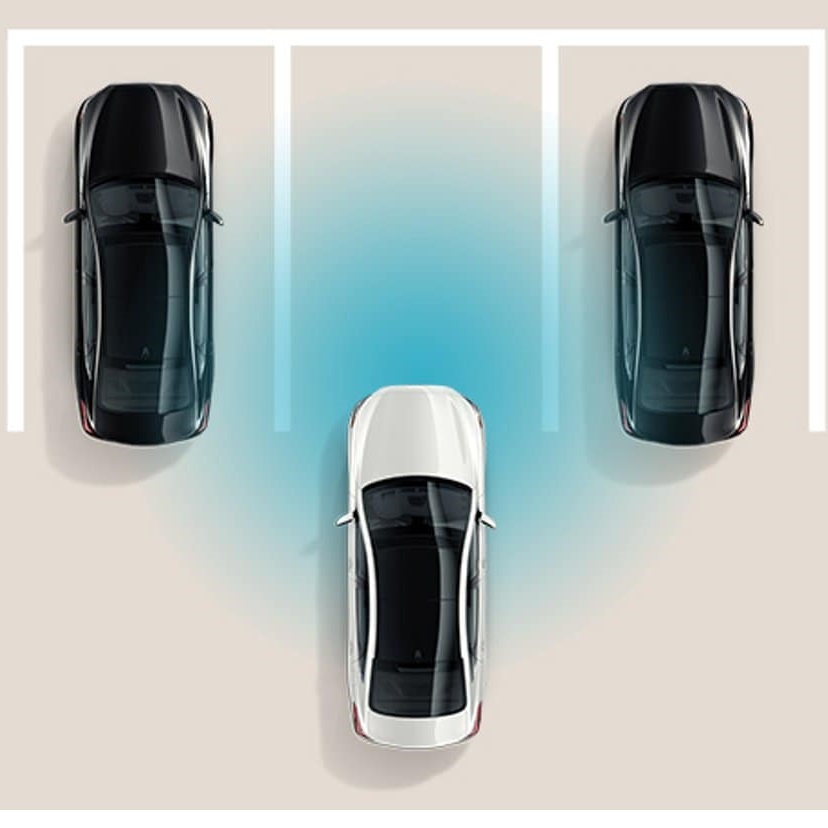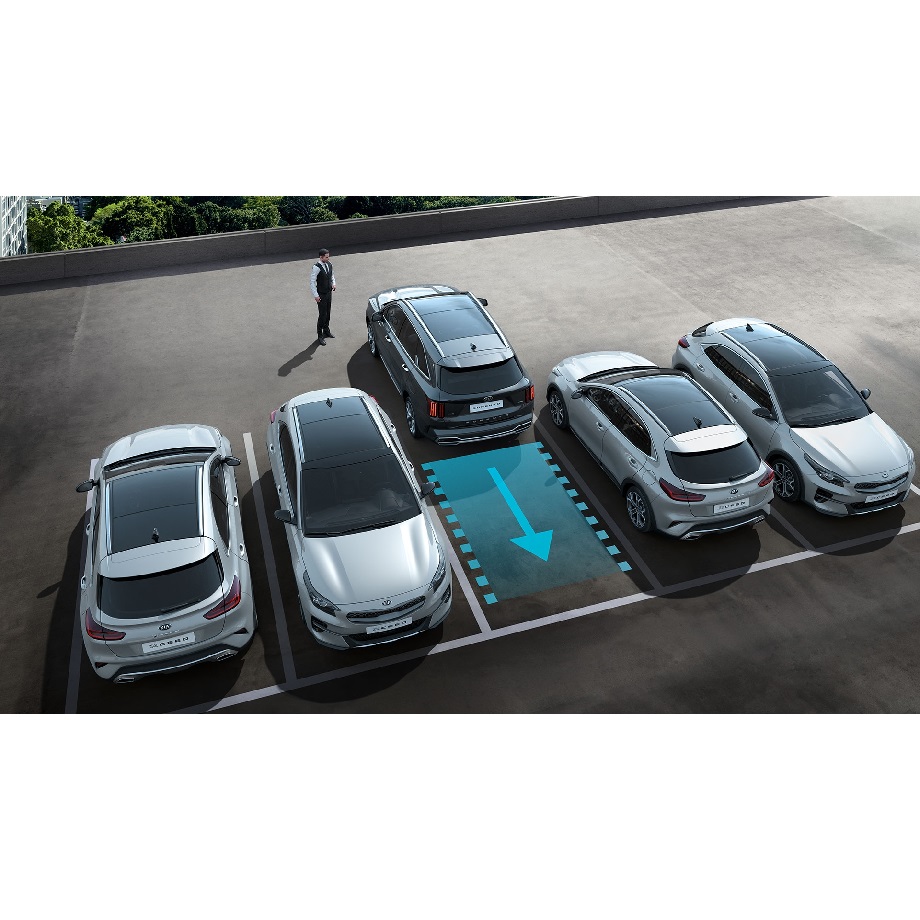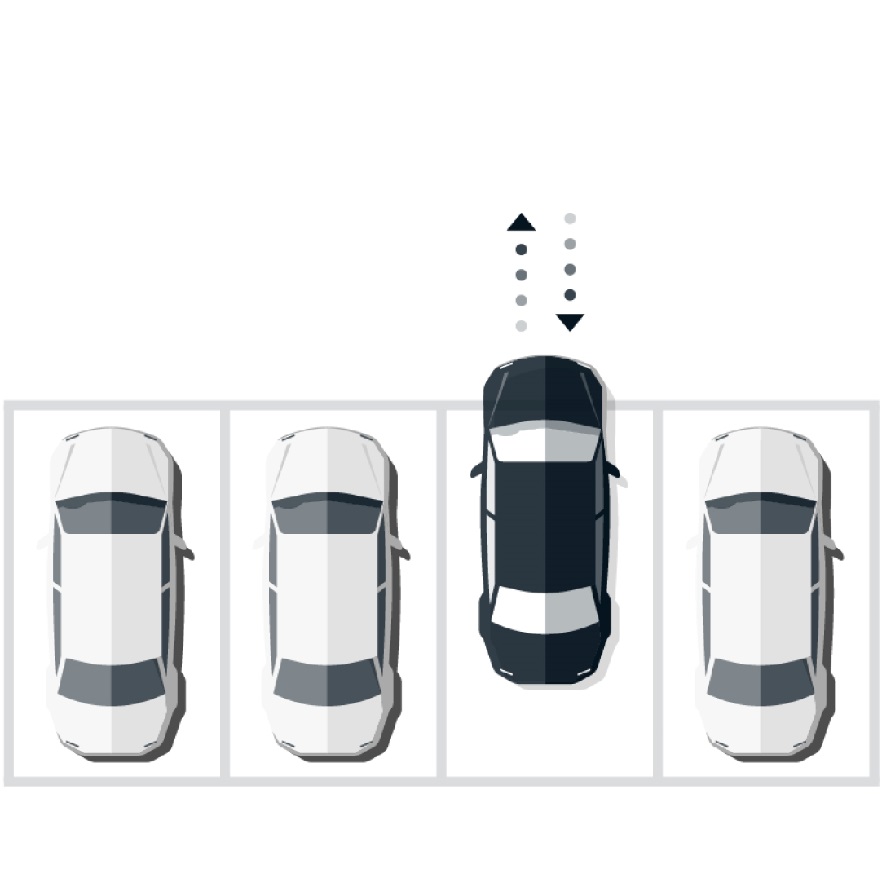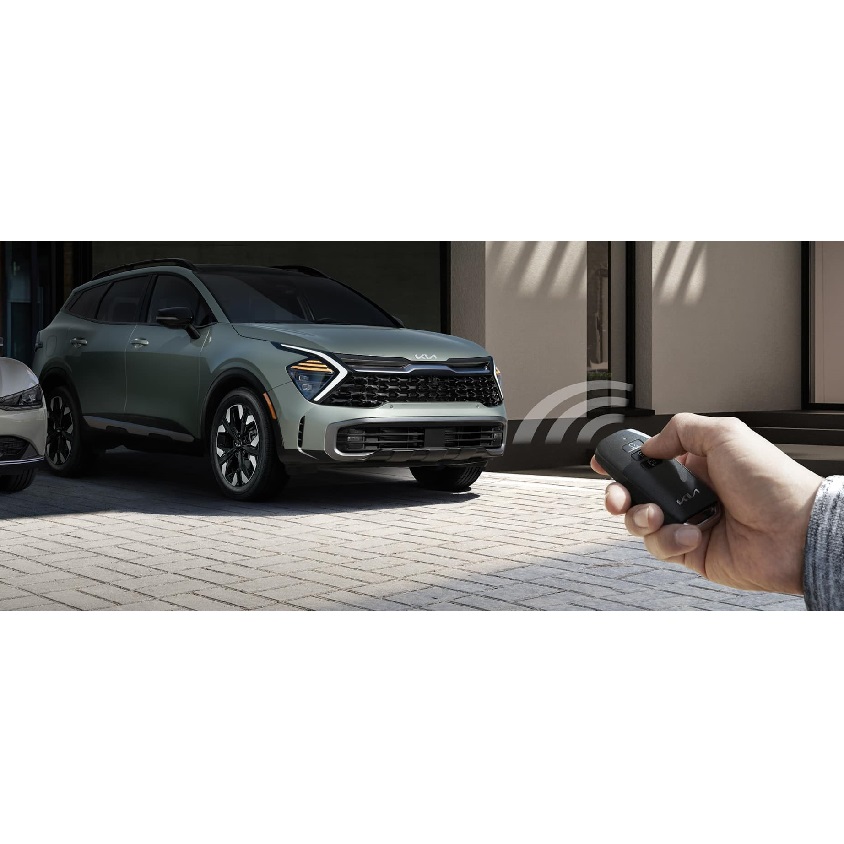Introduction to Remote Smart Parking Assist
Navigating tight parking spots is now easier than ever with the advent of remote smart parking assist technology. This innovative system transforms parking from a stressful task into a convenient and simple operation. With just the press of a button, drivers can now delegate the parking maneuver to their vehicle. Remote smart parking assist is a boon for those who struggle with parallel parking or fitting into tight spaces. The technology leverages sensors, cameras, and sophisticated software to guide a car into a parking space with minimal driver input. It’s an impressive combination of automation and vehicle intelligence that enhances the parking experience significantly. Whether you’re contending with congested city streets or competing for limited parking at the shopping mall, remote smart parking assist stands out as a must-have feature in modern vehicles. It represents a leap towards fully autonomous driving while providing immediate benefits in everyday use.
How Remote Smart Parking Assist Works
The inner workings of remote smart parking assist systems are quite fascinating. At the core, these systems rely on a network of sensors and cameras. These components constantly collect data on the surroundings. The car’s computer processes this data in real-time. Using this information, it steers the vehicle into the chosen parking spot. The driver starts the process with a simple press of a button. Then, the system takes over the wheel and pedals. It manages braking, acceleration, and gear shifting. Ultrasonic sensors on the bumpers detect obstacles and measure distance to them.
Cameras provide a visual feed, helping the system ‘see’ the parking environment. GPS data further aids in precise positioning. Together, these elements enable the car to navigate into parking spots autonomously. Drivers can even activate the system from outside the car in some models. Thus, remote smart parking assist makes parking a breeze. Whether it’s parallel, perpendicular, or angled parking, the system has it covered. It’s a step towards hassle-free and efficient driving experiences.

Benefits of Remote Smart Parking Assist
The introduction of remote smart parking assist systems has brought numerous advantages for drivers. Here, we will explore some of its key benefits.
Convenience and Time-Saving
One of the most apparent benefits is the convenience it offers. Drivers save precious time as parking becomes a swift and hassle-free process. No longer do you need to circle the parking lot searching for a space that feels manageable. With remote smart parking assist, even snug spots are accessible.
Stress Reduction
Parking, especially in tight city spaces, can be stressful. This technology reduces the anxiety associated with parking by handling the task for you. As the driver, you simply activate the system, and it takes care of the rest.
Enhanced Safety
The precision of remote smart parking assist systems leads to increased safety. Potential collisions with nearby objects or other vehicles are significantly reduced. This is due to the accuracy of the sensors and cameras guiding your vehicle securely into place.
Reduced Risk of Damage
Using sophisticated technology to assist with parking reduces the risk of bumping into obstacles, curbs, or other cars. Less contact means fewer scratches, dings, or more serious damage to your vehicle.
Suitable for Diverse Abilities
For individuals who may have physical limitations that make parking challenging, this system is a great equalizer. It allows a broader range of people to park confidently and independently.
Value Addition to Your Vehicle
Having remote smart parking assist installed enhances the overall value of your vehicle. If you decide to sell your car in the future, this feature could be a selling point that sets it apart.
The presence of remote smart parking assist not only symbolizes progression in automotive technology but also offers practical, day-to-day benefits that make driving more enjoyable and less taxing. As vehicle manufacturers continue to refine this technology, its adoption is likely to increase, making driving safer and more convenient for everyone involved.
Key Features of Remote Smart Parking Assist Systems
Key features define the effectiveness and appeal of remote smart parking assist systems. When considering such technology, it’s important to understand what sets it apart. Here are the standout features that make these systems so innovative.
Automation of Parking Manoeuvres
At the heart of remote smart parking assist is the ability to automate the parking process. The system handles the steering, braking, and acceleration. This makes parking seamless and precise with minimal driver input.
Intuitive User Interface
Ease of use comes from an intuitive interface. Users engage the system with a simple button press. Some systems include a remote or an app. This puts parking control right in the driver’s hand, even from outside the vehicle.
Real-time Sensors and Cameras
Sensors and cameras are the eyes and ears of the system. They provide real-time data to navigate safely into parking spots. This includes ultrasonic sensors and visual cameras that scan for obstacles.
Compatibility with Different Parking Types
Whether it’s parallel, perpendicular, or angled parking, these systems adapt. They ensure efficient parking in various scenarios. This flexibility is a major advantage for users in diverse parking conditions.
Vehicle Security
Some remote smart parking assist systems offer extra security. They may lock the doors once parked or alert the driver of potential threats. This boosts peace of mind for users.
Customizable Settings
Drivers may adjust settings to suit their preferences. This customization ensures the system aligns with individual parking habits and needs.
By incorporating these key features, remote smart parking assist systems provide a sophisticated blend of technology and convenience. They make parking effortless, cementing their place as a sought-after feature in modern vehicles.
Comparing Different Remote Smart Parking Assist Technologies
When exploring remote smart parking assist systems, it’s crucial to compare the various technologies available. Car manufacturers offer diverse solutions, each with unique aspects. Here we look at how these technologies differ and what to consider during a comparison.
Core Technology Variances
Different brands use distinct sensors and camera setups. Some may favor ultrasonic sensors, while others integrate laser or radar technology. These choices affect how the car perceives its environment and parks.
Interface and Control Differences
The mode of activating the parking assist can vary. Some systems work with a simple button push inside the car. Others allow control via a smartphone app or key fob, adding convenience.
Parking Precision and Speed
The speed and precision of parking maneuvers also differ. Some systems can navigate into spots faster but may require slight adjustments. Others take more time but offer higher precision.
Compatibility with Car Models
Not all technologies are suitable for every car model. It’s important to check if the system matches your vehicle’s specifications and design for optimal performance.
Additional Functions
Some remote smart parking assist systems include extra features. These may range from vehicle diagnostics during parking to integration with home automation systems.
Cost Considerations
The price tag of these systems is a deciding factor. Higher-end models often come with advanced features but at a greater cost. It’s important to balance functionality with affordability.
By comparing these factors, you can determine the right remote smart parking assist technology for your needs. Remember that the overall goal is to make parking easier, safer, and suitable for your specific driving habits and vehicle type.
Challenges in Implementing Remote Smart Parking Assist
While remote smart parking assist technology offers significant benefits, several challenges exist in its implementation. Addressing these obstacles is crucial for the widespread adoption and efficacy of these advanced parking systems.
Technological Limitations
Some technologies are not yet advanced enough to handle every parking situation. Sensor limitations can lead to issues in extreme weather or complex scenarios. Improving sensor technology is key to overcoming these hurdles.
Infrastructural Constraints
Current parking infrastructures may not support the full potential of smart parking assist. Modifications in parking spaces and urban design might be necessary to optimize these technologies.
Interference and Compatibility Issues
Different frequencies and signals can interfere with the system’s sensors. Ensuring compatibility with various environments and preventing interference is a challenge.
High Costs of Implementation
The cost to install remote smart parking assist can be significant. This high cost can be a barrier for both manufacturers and consumers, making it less accessible for budget models.
User Trust and Acceptance
People may be hesitant to trust a system for parking their vehicle. Building user confidence is essential for the technology to be embraced and used correctly.
Regulatory and Legal Concerns
There are legal considerations with automated systems like remote smart parking assist. Clear regulations that ensure safety without stifling innovation are necessary.
By tackling these challenges, the benefits of remote smart parking assist can be maximized. This will pave the way for a future where parking is fully automated and hassle-free.
The Future of Parking: Smart Systems and Innovations
The future of parking looks bright with smart systems and innovations. As technology advances, remote smart parking assist systems will become more refined. These systems are set to become a standard feature in new car models. Drivers will enjoy even greater convenience and safety.
Innovations on the Horizon
Several intriguing innovations are on the horizon for parking technology. We’ll see improvements in sensor accuracy and range. This will allow systems to work in more diverse conditions. Car-to-infrastructure communication will enable vehicles to interact with parking facilities. This will make parking even more seamless.
Integration with Autonomous Vehicles
As autonomous vehicles become more common, parking systems will become more sophisticated. They will need to handle a car’s complete parking process. This integration is a big step towards fully autonomous driving experiences.
Smart City Integration
Smart cities will integrate parking systems into their infrastructure. This means your car could communicate with parking spaces. It could reserve and pay for parking without any input from you.
Enhanced User Experiences
Future systems will offer more customization. Drivers will be able to choose how they want their car to park. The user interface will be more intuitive, making the system easier for everyone.
Eco-Friendly Parking Solutions
Emerging parking technologies will also focus on eco-friendliness. Systems could guide drivers to spaces in a way that reduces emissions. This helps the environment while helping drivers find spots faster.
The continuous evolution of remote smart parking assist technology promises to revolutionize how we think about parking. With these smart systems and innovations, parking is set to become simpler, more efficient, and more adaptive to our needs.
Choosing the Right Remote Smart Parking Assist System for Your Vehicle
Selecting the best remote smart parking assist system for your vehicle involves considering various factors. The choice can significantly affect your driving experience. It’s important to weigh the options carefully before making a decision. Here are several aspects to guide you in choosing the right system.
Evaluate Your Parking Needs
Think about where you usually park. Are you often in tight city spots or open suburban areas? Your common parking scenarios will determine which system suits you best.
Check System Compatibility
Verify that the system fits your car’s make and model. Not all parking assist technologies work with every vehicle. An incompatible system won’t operate properly.
Consider the Technology Used
Look into the sensors and cameras the system uses. Some might be more accurate than others. Choose technology that meets your precision and reliability needs.
Test the User Interface
The system should be easy to use. Try the interface yourself. It must be straightforward and responsive to ensure a smooth parking process.
Look for Customizable Features
The more you can tailor the system to your habits, the better. Find a system that allows for setting adjustments. This makes it more adaptable to your preferences.
Assess the Cost Factor
Evaluate your budget. Remote smart parking assist systems come at different price points. Go for one that offers the best balance between cost and features.
By considering these factors, you’ll be better equipped to choose a remote smart parking assist system that enhances your parking experiences and fits within your lifestyle and budget.


